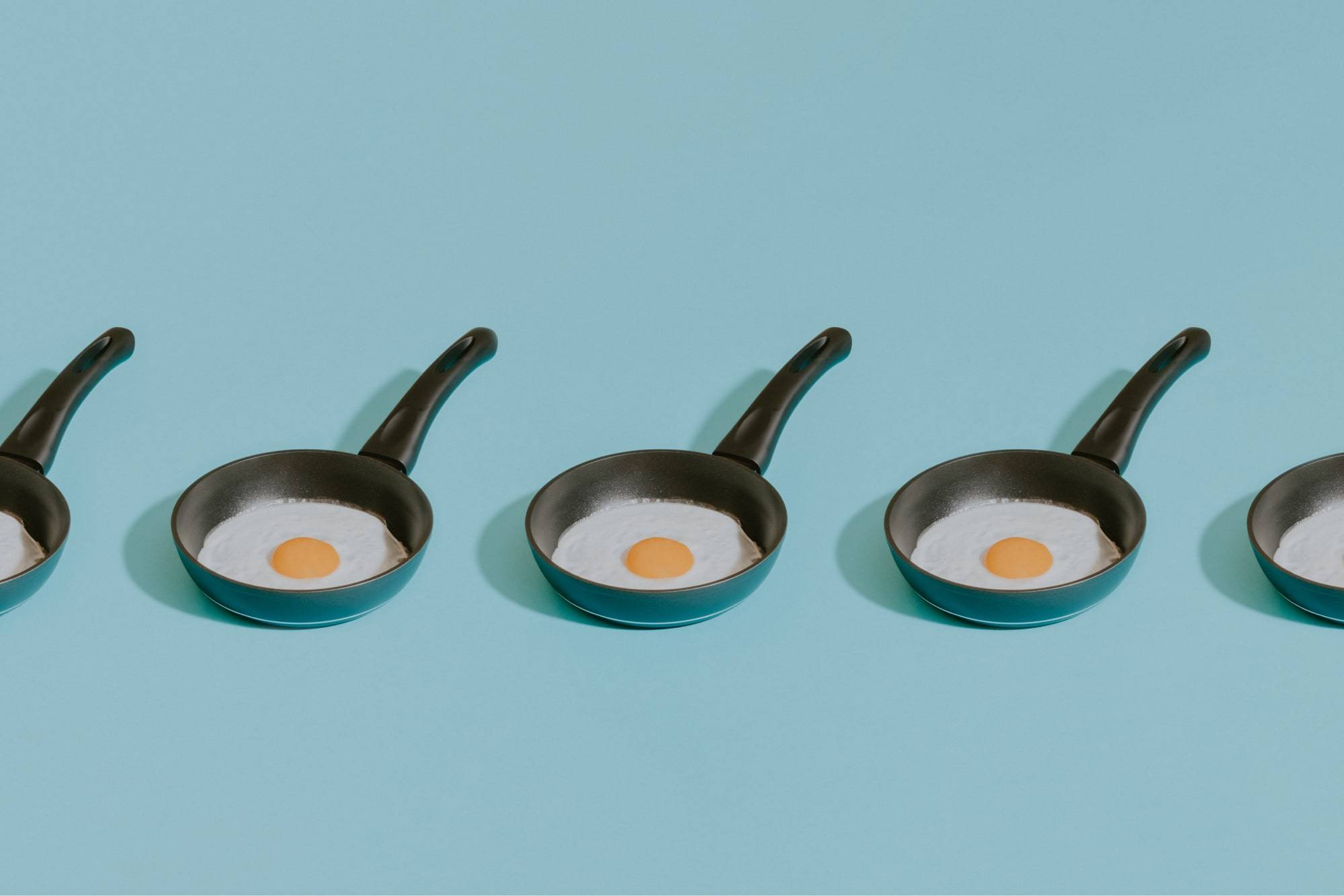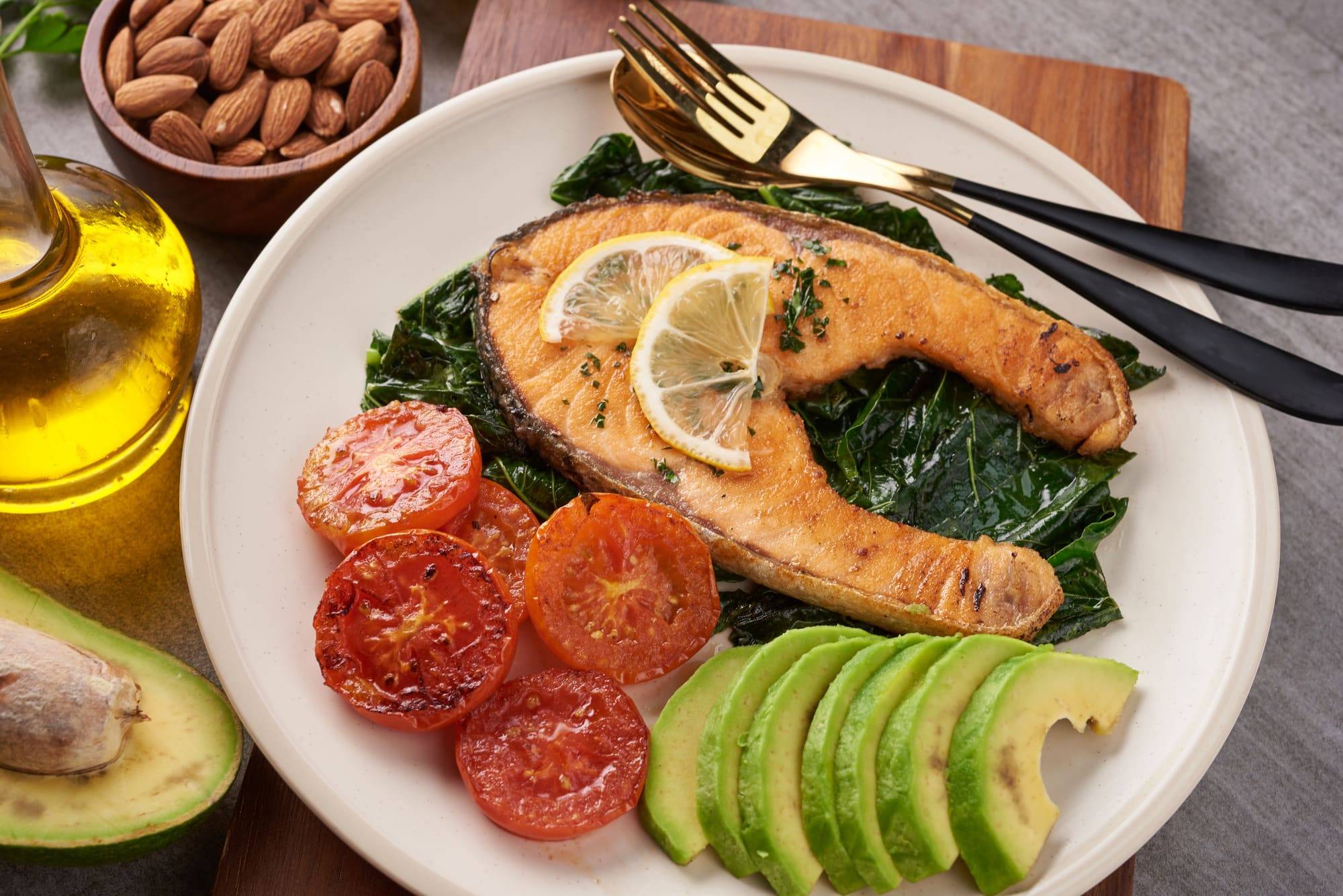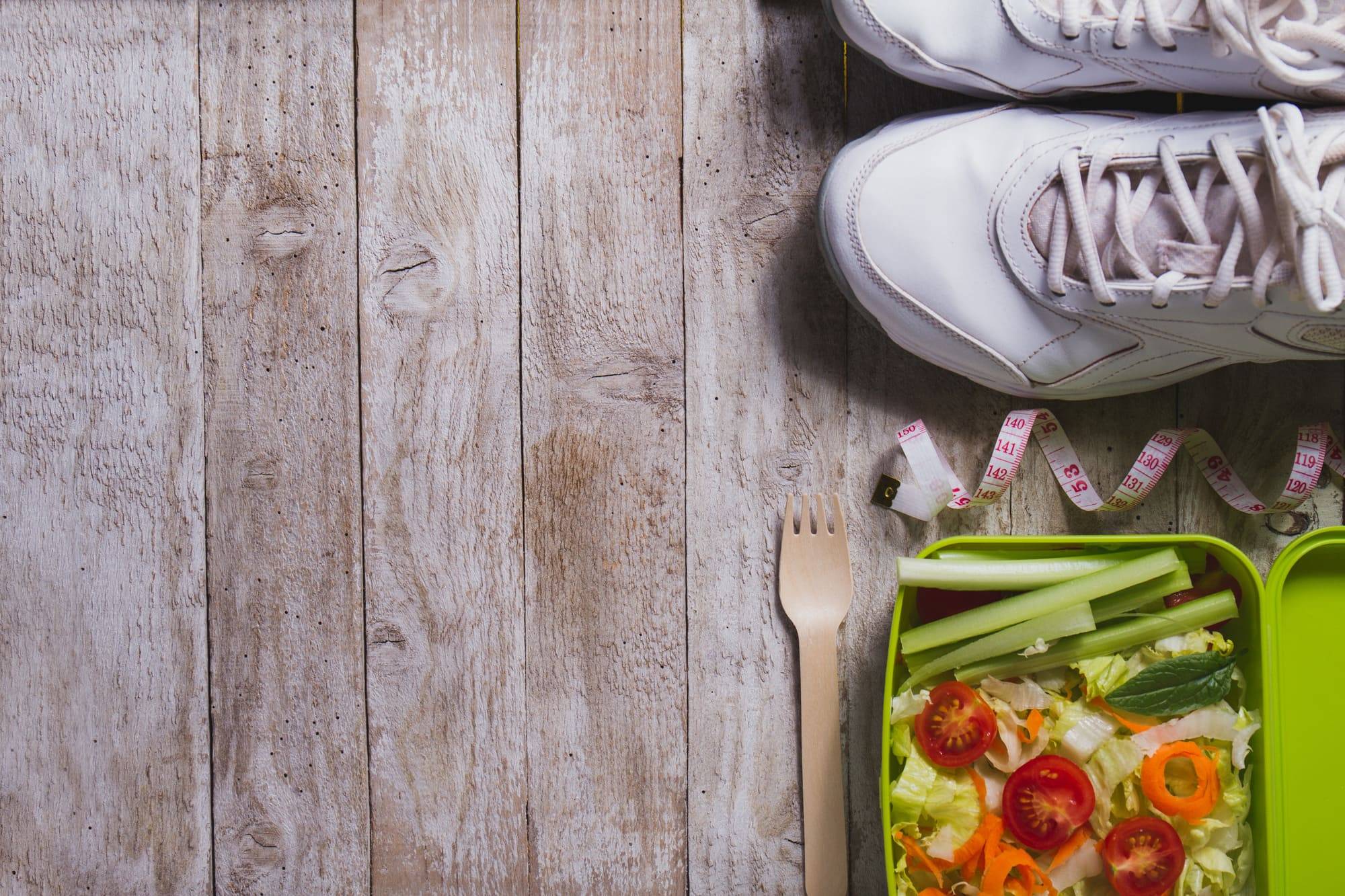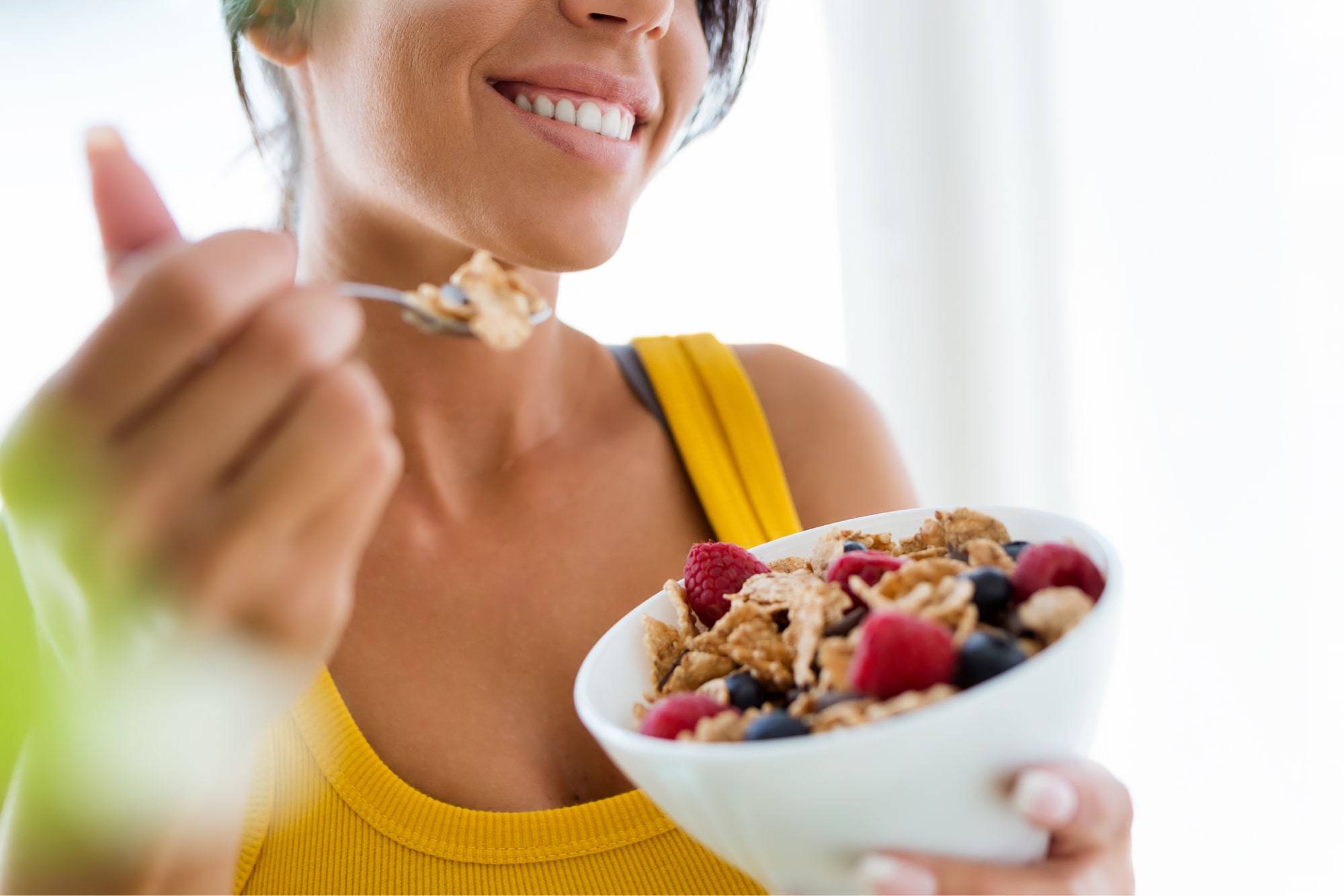Proper, balanced nutrition is an integral part of any training process. It is especially important for endurance activities such as marathon running or triathlons. Here are some tips to help you plan a proper diet during workouts and competitions.
Running Nutrition: Yes, Eggs Should Be Included
Depending on the diet, between 10 to 35% of one’s calories should come from protein. And as an athlete, you tend to need more than a sedentary lifestyle, as maintaining proper protein intake is crucial for maximum performance.
Eating before a marathon not only nourishes the body but also helps to rebuild muscles. “During marathon training, muscles wear out a lot, so I always recommend increasing protein intake,” says nutritionist Renee McGregor, who works with athletes and Olympians. McGregor recommends consuming 1.4-1.8 grams of protein per kilogram of body weight daily.
In other words: (Your weight in kilograms) x 1.4 = recommended protein intake per day in grams.
Sources of protein are:
- eggs;
- Greek yogurt;
- fish;
- chicken;
- lentils;
- and legumes.
The best food for marathon training that contains proteins are eggs.
Protein provides quality satiety and therefore reduces calorie intake and promotes weight loss. In addition, getting enough protein helps strengthen muscles – or at least minimize their loss during weight loss.
Fats also slow down digestion and promote satiety. So you should eat the egg yolks.
Avoiding the yolks deprives the body of useful fats and extra protein.
Eggs are rich in vitamin A, folic acid, B vitamins, phosphorus, selenium, calcium, and zinc and contain vitamins D, K, and E. One boiled egg contains 77 kcal, 6 g of protein, and 5 g of good fats.
Eggs occupy one of the highest positions on the scale of safe foods, which measures the ability to saturate and reduce the need for subsequent calorie intake. It is a source of high-quality protein and essential amino acids that allow our bodies to absorb protein properly.
Advantages of eggs:
- contain high-quality protein
- contain useful nutrients
- due to fats giving fast satiety
Regular consumption of quality protein helps to lose weight, increase muscle mass, lower blood pressure and optimize the health of the musculoskeletal system. Eggs are a primary source of choline. Choline (vitamin B4) is an extremely important substance used to build cell walls and protect them from destruction and damage. It also lowers blood cholesterol and has a nootropic, antidepressant, and soothing effect. Choline improves metabolism in nervous tissue, prevents the formation of gallstones, normalizes fat metabolism, and is the best food for weight loss.
Eggs are a favorite source of protein for athletes. They often eat an omelet with 7-8 egg whites and 1-2 yolks – getting a significant amount of protein (50 grams) with a minimum amount of cholesterol. However, if you eat 8 whole eggs a day (including all the yolks), the body will receive an additional 1.6 g of cholesterol.
Disadvantages:
- Excessive cholesterol intake is hazardous for those athletes who use anabolic supplements. In this case, the rule is simple – too many fresh eggs can be harmful. Otherwise, if you eat 15 eggs a week, health problems will only occur if you have a chronic illness.
A number of studies show that in healthy people (both adults and children), eating eggs even in large quantities (about 3-4 per day or about 20 per week) does not affect total cholesterol in the blood in general, nor the level of “bad” cholesterol in particular.
But eating eggs is not the only healthy source of energy for training and marathons. You also need fats, carbohydrates, and other rich in protein foods.
How to Get Energy Before a Run?
Marathon runners consume more energy than high-speed racers. And morning jogs can mean an extra dose of simple carbs at breakfast, not only eggs.
To make sure you are working at full capacity, it is important to refuel in advance with the right food. Here’s what you need to eat before running to maintain energy and concentration during your workout.
Carbohydrates
The marathon “wall” is the fear of all endurance runners. This phenomenon can happen to anyone, no matter how well you train. Carbohydrates in the body accumulate in the muscles and liver in the form of glycogen. During intense physical activity, the glycogen content decreases, which leads to fatigue. The marathon “wall” will be accompanied by feelings such as tremors in the arms and legs, impairing coordination and indicating a lack of carbohydrate nutrition in the brain. To avoid this unpleasant phenomenon, it is essential to “carbohydrate load” before the race. Foods for runners rich in easily digestible carbohydrates are best for this. They include pasta, cereals, and fruits.
Proteins
Protein is a building block for muscle recovery. It is especially important to get enough protein after a long workout or competition to repair damaged tissues and stimulate the development of muscle fibers. Good protein foods after intense exercise include milk, cheese, yogurt, white meat, and eggs. If you do not eat animal products, consider soy products, legumes, cabbage, nuts, and sprouted wheat to restore lost protein.
Fats
Fats are important for runners to help avoid muscle and ligament tears. Omega-3 fatty acids are best absorbed. They are found in polyunsaturated fats, such as fatty sea fish, nuts, flaxseed, and rapeseed oil. The daily norm of polyunsaturated fatty acids for an adult is 2-6 grams. Fats are digested for a long time (3-4 hours), so it is not advisable to eat foods that contain them before training or competitions.
Certified sports nutritionist, biochemist, and Hollywood trainer Shawn Wells in his audiobook, The Energy Formula: Six Life-changing Ingredients to Unleash Your Limitless Potential, explains how to choose the proper diet.
He notes that if you are trying to achieve optimal results in sports, you need to get enough calories by following a strict diet. “Insufficient calories in an athlete leads to insufficient productivity,” says the expert. “You need to take 1.2-2 g of protein per kilogram of body weight to feel good.”
“As I experimented with different food plans, I could tell that by removing sugar, increasing my intake of high-quality proteins, and increasing fats, I just “felt” different. I felt more engaged and energized and had greater clarity and resilience,” says Wells.
Nutrition Before Important Competitions
Your diet plan, starting a few weeks before the competition, is very important to achieve high results. You should not experiment with your nutrition before and during competitions. Stomach problems will not help you show personal achievement.
Easily digestible carbohydrates (such as rice, cereals, oatmeal, and pasta) should be increased in the diet. This will create an additional resource of glycogen in the body. The last week is the time to really load carbohydrates, so you should increase your intake of pasta and cereals at this time. Many experienced marathoners also drink water-based honey and lemon, but it should not be too sweet. It is also important to unload the liver before the competition. To achieve this, the diet should be completely free of fried and spicy foods, spices, alcohol, canned food, semi-finished products, and fast food. The best option is to cook in a steamer.
What Should Runners Eat During a Competition?
Food is a very individual thing. Everything you eat or drink during a competition must be “tested” in training. You need to know how your stomach will react to specially-designed sports gels and isotonic drinks.
You can also try bananas, oranges, honey, dried fruits, and oatmeal. It is necessary to take small portions of “fuel” every hour. Also, don’t forget to drink fluids, preferably electrolytes.
At the end of the competition or long training, restoring the body’s water-salt balance is crucial. So a full meal should be eaten no later than one hour after exercise.






